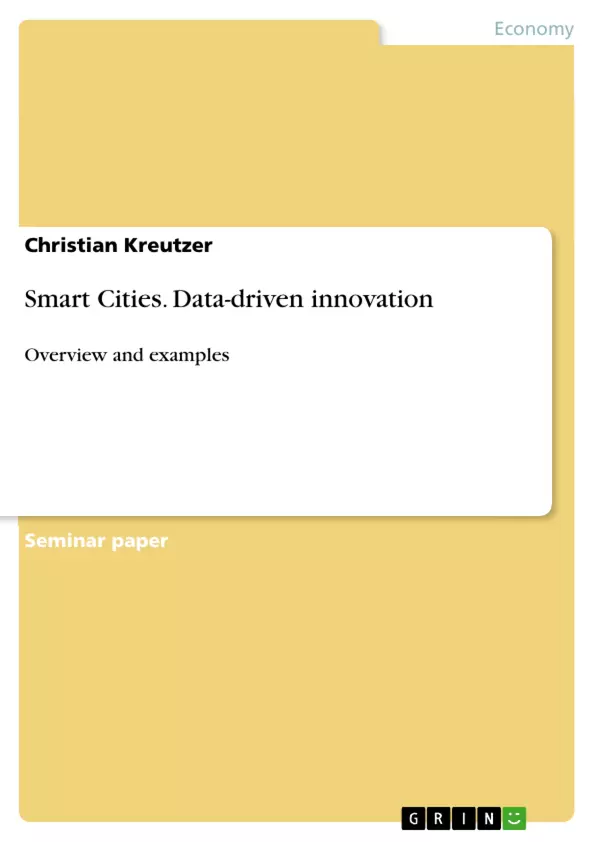In the following paper, I want to provide insight into the two aspects of Smart Cities: the electricity sector and the transportation sector. In both sectors I want to highlight how real time data is used to make life in a city more efficient and improve its quality.
The paper is organized as follows. At first chapter 2 will give insights in smart cities and data production. Chapter 3 will continue with the electricity sector. Here I will go into detail about how smart meters can improve the energy management of utilities and customers. Chapter 4 will proceed with the transportation sector. This chapter is divided into two parts. The first part is about mobile apps and will present two successful transportation apps on the market (Moovel and Citymapper). The second part is about road traffic management, it will highlight the system of Stockholm, Singapore, and London.
Inhaltsverzeichnis (Table of Contents)
- Introduction
- Smart cities and data production
- The electricity sector
- The transportation sector
- Mobile Apps
- Road traffic management
- References
Zielsetzung und Themenschwerpunkte (Objectives and Key Themes)
This paper provides insight into the utilization of real-time data within the electricity and transportation sectors of smart cities. The aim is to showcase how data-driven innovation enhances efficiency and quality of life within urban environments.
- Smart cities and data production
- The role of smart meters in energy management
- Mobile applications for transportation optimization
- Data-driven road traffic management systems
- The potential of real-time data for urban improvements
Zusammenfassung der Kapitel (Chapter Summaries)
The introduction outlines the paper's focus on data-driven innovation in the electricity and transportation sectors of smart cities. It provides a roadmap for the subsequent chapters.
Chapter 2 delves into the concept of smart cities and the production of urban data. It categorizes data collection into three main categories: Flows, States, and Activities, providing examples for each category.
Chapter 3 examines the electricity sector and the role of smart energy meters in improving energy management. The chapter highlights the benefits of two-way communication between energy providers and meters, including accurate billing, real-time pricing, and reduced energy consumption.
Chapter 4 focuses on the transportation sector, specifically addressing mobile apps and road traffic management. It presents successful examples of transportation apps like Moovel and Citymapper, and highlights the data-driven systems implemented in Stockholm, Singapore, and London.
Schlüsselwörter (Keywords)
Smart Cities, data-driven innovation, real-time data, electricity sector, smart meters, transportation sector, mobile apps, road traffic management, efficiency, quality of life, urban development.
- Arbeit zitieren
- Christian Kreutzer (Autor:in), 2017, Smart Cities. Data-driven innovation, München, GRIN Verlag, https://www.hausarbeiten.de/document/432921


